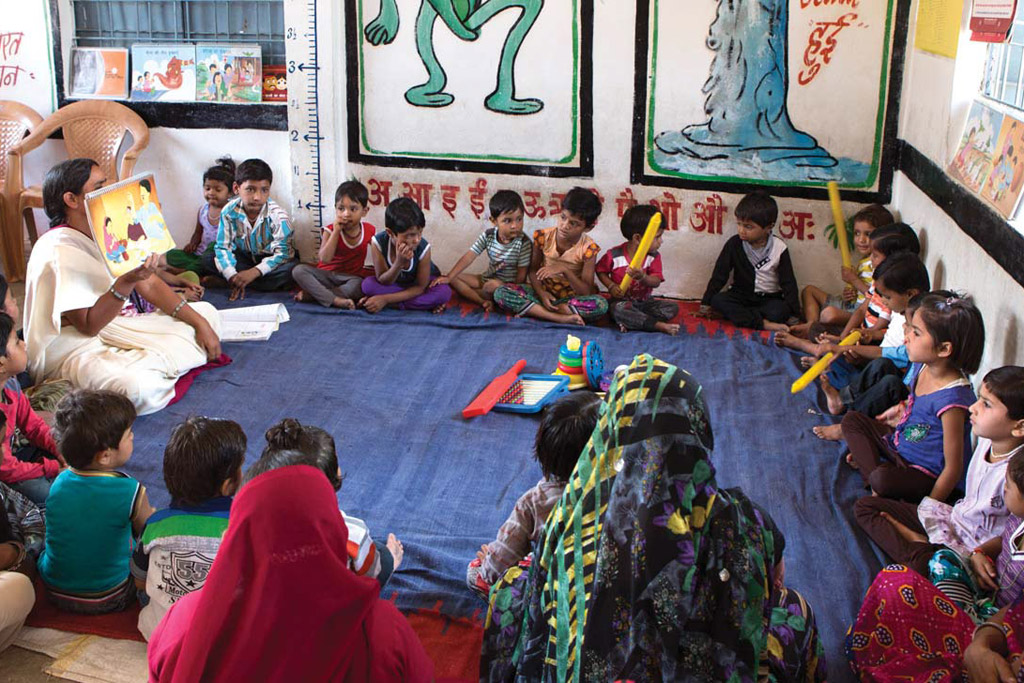
UNICEF: Progress for children rights in south Asia, but inequalities exist
“More than 2 million children in South Asia die before their fifth birthday and these deaths are preventable,” said Karin Hulshof, Regional Director for UNICEF in South Asia.
In addition, “38 per cent of all the region’s children have chronic malnutrition. And South Asia is one of the riskiest places in the world to become pregnant or give birth, with the second highest number of maternal deaths worldwide. Far too many children get married, and far too many girls are never born,” Hulshof said.
The key findings are set out in a new publication Improving Children’s Lives, Transforming the Future – 25 years of child rights in South Asia, which analyzes progress made over the last 25 years on nine key issues that directly affect the lives of children. It also provides ideas and recommendations to improve the lives of children across the region.
Key findings include: approximately 8 million children below the age of one are not immunized; more than 45 percent of girls marry before the age of 18, and 18 percent marry before age 15; South Asia is home to the largest number of stunted children in the world; nearly 700 million people still defecate in the open; and approximately 100 million children under five are not registered at birth.
“South Asia continues to be one of the riskiest places in the world to become pregnant or give birth, with the second highest number of maternal deaths worldwide,” Hulshof added in a press release. “Far too many children get married, and far too many girls are never born. But together, we can turn the tide.”
On Thursday ’s report was published to mark this year’s 25th anniversary of the Convention on the Rights of the Child (CRC).
All countries in South Asia have incorporated aspects of the Convention into domestic legislation and have set up ministries and oversight institutions in charge of children’s issues.
According to UNICEF, in some countries, very progressive legislation has been enacted, establishing children’s legally enforceable rights to health, education, protection and participation.
Yet, pervasive poverty and disparities prevent millions of children in South Asia from living in dignity, reaching their potential and making choices about their own future.
“Despite rapid economic growth in the region and consequent improvements in realizing the rights of children, massive disparities still exist which prevent millions of children from living in dignity, reaching their full potential and making choices about their futures. At UNICEF, we are united in our belief that everybody in South Asia has an obligation – and the potential – to do more to realize the rights of every single child in the region,” Hulsof said.
“The good news is that we have the knowhow and innovative approaches to make positive changes in the lives of children in South Asia” she added.
UNICEF South Asia is also marking the 25th anniversary of the Child Rights Convention with the launch ofGeneration@25, a campaign which focuses on improving girls’ education in Afghanistan, preventing stunting in India, ending open defecation in Nepal, and ensuring all children receive a birth registration in Bangladesh.
Photo: UNICEF
Support Our Journalism
We cannot do without you.. your contribution supports unbiased journalism
IBNS is not driven by any ism- not wokeism, not racism, not skewed secularism, not hyper right-wing or left liberal ideals, nor by any hardline religious beliefs or hyper nationalism. We want to serve you good old objective news, as they are. We do not judge or preach. We let people decide for themselves. We only try to present factual and well-sourced news.







